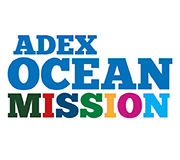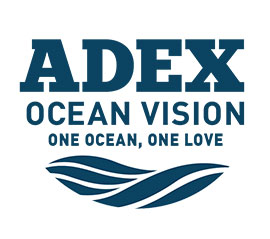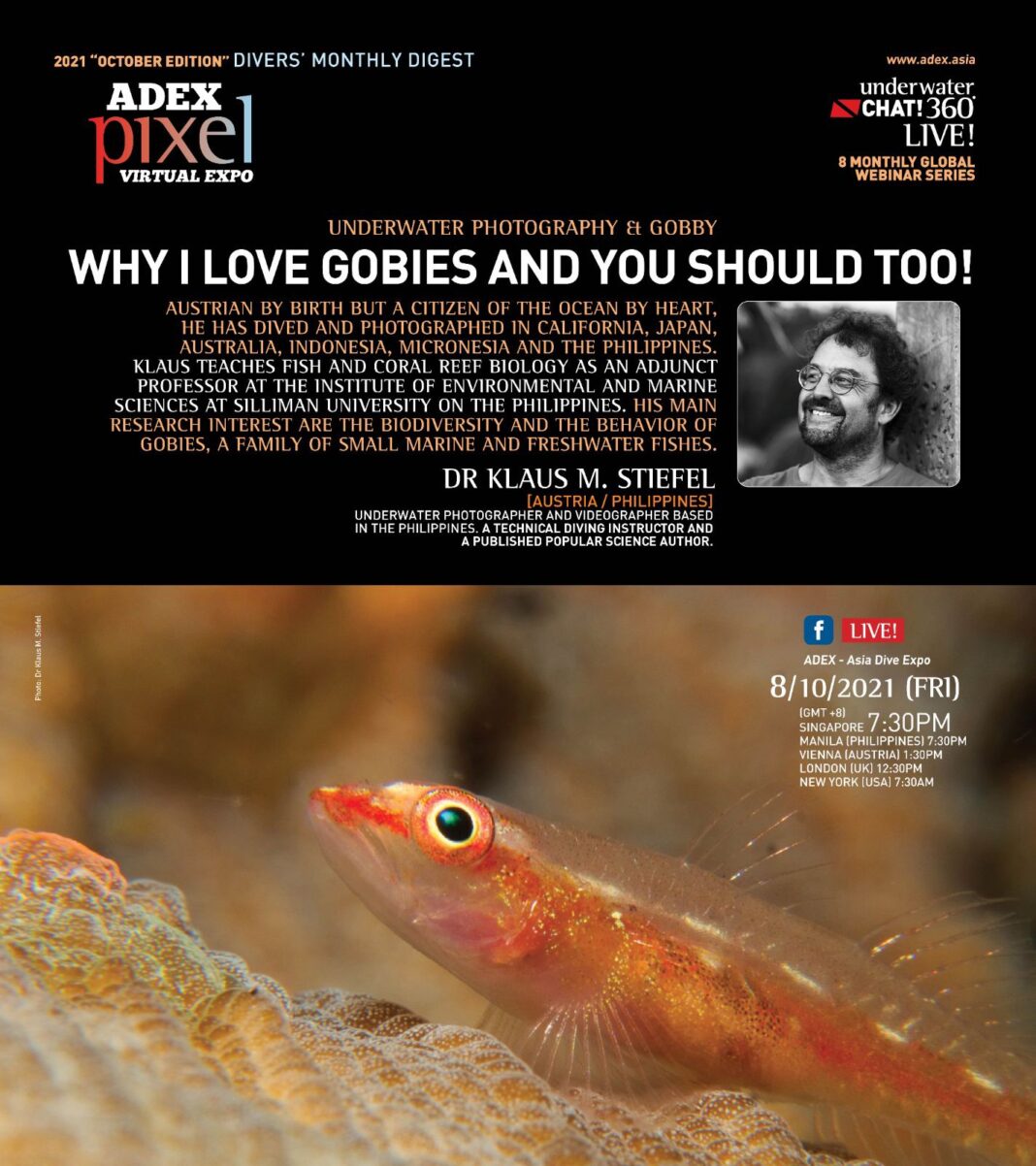 Gobies. That’s what’s fascinating to study. The exquisitely colourful gobies are so wonderful, you must join Klaus’ and hear about his raves about life in the ocean! Dr Klaus M. Stiefel has been studying these minute fishes and their interesting behaviour using video analysis and simulations.
Gobies. That’s what’s fascinating to study. The exquisitely colourful gobies are so wonderful, you must join Klaus’ and hear about his raves about life in the ocean! Dr Klaus M. Stiefel has been studying these minute fishes and their interesting behaviour using video analysis and simulations.
As a scuba instructor, underwater photographer, and independent scientist residing in the Philippines, Klaus’ scientific interests in neurobiology, evolutionary biology and marine biology (especially the biology of gobies, small marine fishes) are endless.
How he started
Born and raised in Austria, Dr. Klaus M. Stiefel has had an extensive education around the world, where he did his undergrad at the University of Vienna (Microbiology, 1998) and his doctorate at the University of Vienna and the Max Planck Institute for Brain Research, Frankfurt (zoology, 2002). Research stints in California (The Salk Institute), Japan, and Australia (University of Western Sydney) followed.
This only fuelled his love and passion for the ocean. He has dived and photographed a smorgasbord of amazing sea life, from California to Australia and Asia! He currently teaches on fish and coral reef biology as an adjunct professor at the Institute of Environmental and Marine Sciences at Silliman University of the Philippines.
Almost like a walking encyclopedia, Klaus’ knowledge of marine life keeps growing. As he resides in the Philippines, he is affiliated with the Neurolinx Institute based in La Jolla, CA, USA, and continues to pursue commercial science projects with MyScienceAgents, also based in La Jolla.
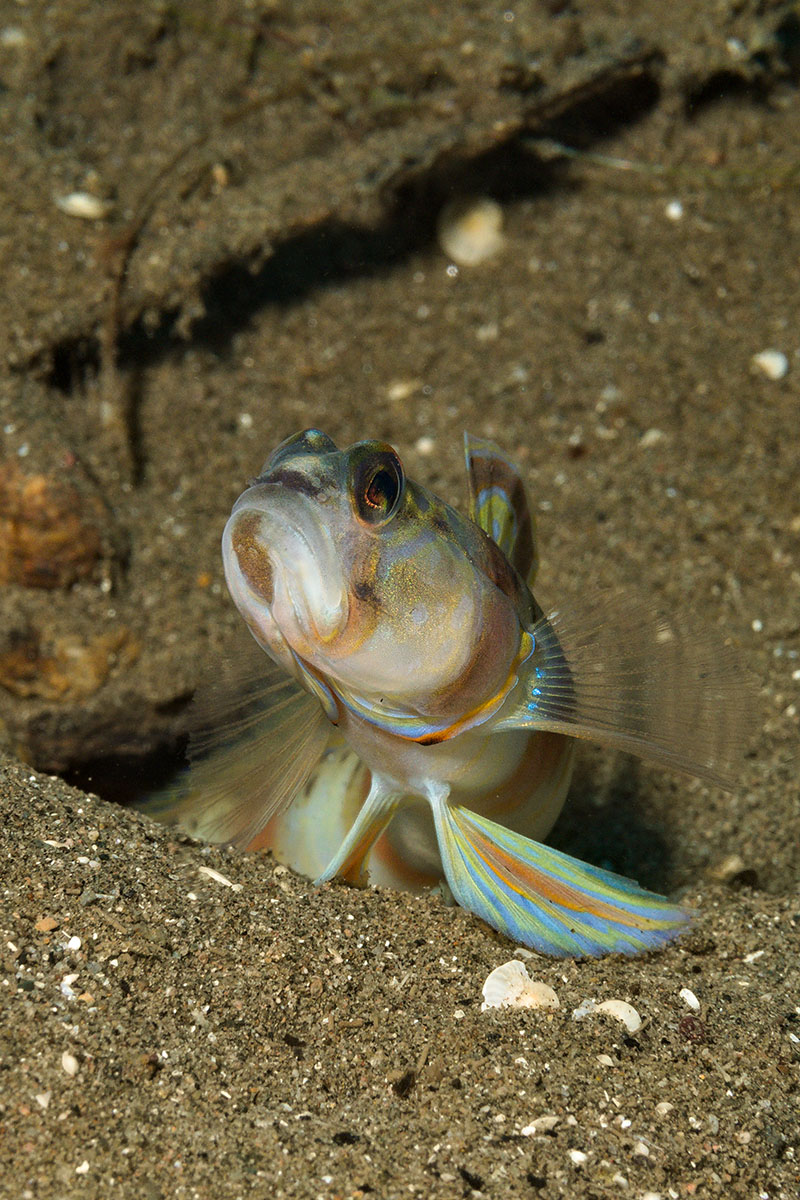
Why Klaus loves Gobies And You Should Too!
Gobyphilia — what is that?
It’s the love of gobies, and it’s widespread among scuba divers and especially macro-loving underwater photographers. It’s running in Klaus’ blood, and we hope you have it after hearing from him!
These minute gobies are in fact some of the smallest known vertebrates (animals with a backbone), and in the coral crevices, on the sponges and in the sand of reefs everywhere, there are many of them to admire. Gobies are often colorful and fantastically painted, and many of them display a number of very interesting behaviors.
Many of them are stunning, small aquatic jewels, with astounding colors and patterns. As one of the smallest vertebrates, they’re as small as a centimeter.
The ocean is not just impressive sharks, and colourful coral reefs. Gobies are stunning, small aquatic jewels with astounding colours and patterns – of which you must know about. It’s time to appreciate the brilliance of gobies with Klaus!
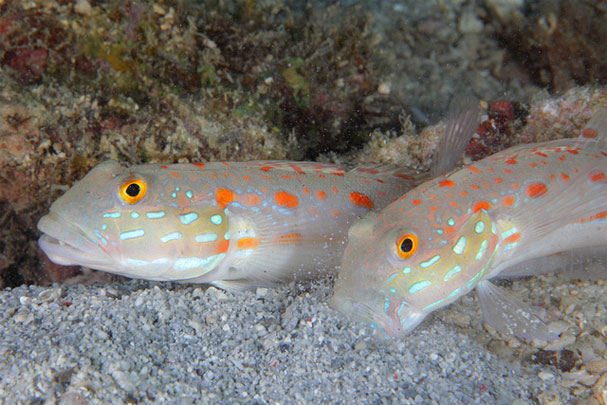
Hear more from Dr. Klaus M. Stiefel!
It’s about time you notice the symbolic relationships and behaviours of gobies. Let Dr. Klaus M. Stiefel walk you through Underwater Photography featuring Gobies!
Day/Date: 8 October 2021, Friday
Time: 7:30 PM (Singapore / Manila, Philippines) | 1:30 PM (Vienna, Austria) | 12:30 PM (London, UK) | 7:30 AM (New York, USA)
Where: ADEX Official FB Page | APE Homepage
#APE 8TH MONTHLY VIRTUAL EVENT 2021 SCHEDULE – OCTOBER SERIES
Organised by the digital platform for ADEX Asia Dive Expo, ADEX Pixel Expo, #APE 8th Monthly Virtual Event 2021 celebrates the diversity of the ocean and its diving landscape, with a series of events happening on the 8th of each month, with an aim to bring trending dialogue and deep-rooted tales on the pulse of scuba diving, with inspirational guests and insightful stories!
What’s Next?
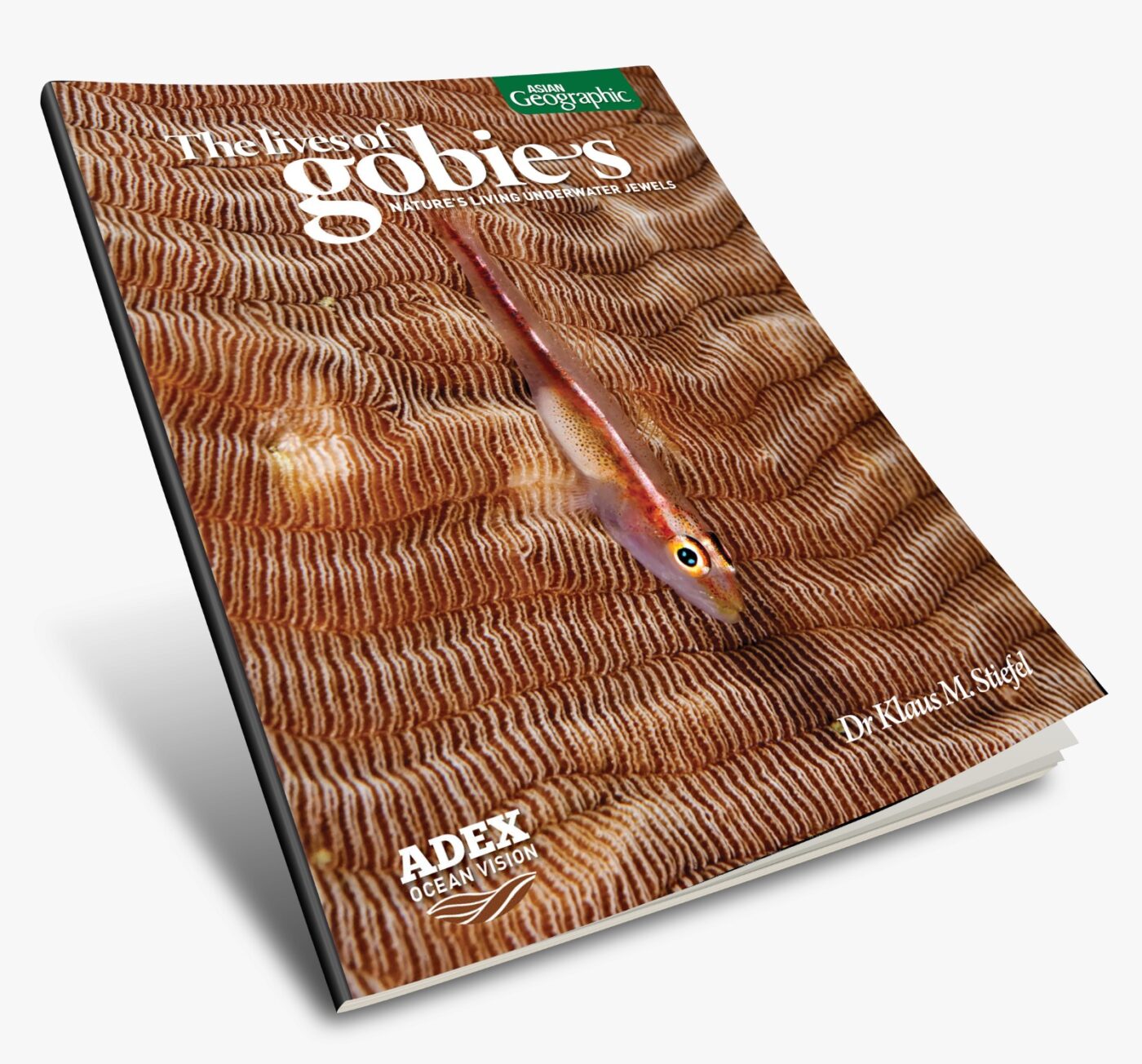
RESERVE YOUR COPY NOW!
Featuring Asian Geographic’s latest book, The Lives of Gobies By Dr Klaus M. Stiefel, and probably the best gift for the holidays for your favourite ones! For the latest updates, follow us on www.asiangeo.com. Out in-store on Dec – Pre-order your copy now!
“The Lives of Gobies” describes the biology and natural history of one of the largest families of fishes – the gobies. There are many noteworthy aspects to their biology: they are highly diverse with more than 2000 species, and often live extremely short lives, of only weeks, the shortest known life-spans of all vertebrates. Gobies are also supremely well adapted to live on corals and sponges by matching their hosts in colour and pattern. Shrimp-gobies share burrows with crustaceans and communicate with them in sophisticated ways, while freshwater gobies climb hundred-meter high waterfalls. Finally, some very specialized gobies, the mudskippers, made the step onto land, like our ancestors in Paleozoic times.
Written for nature enthusiasts and scuba divers. The information is scientifically cutting-edge, but presented in an easy-going, readable format appealing to interested lay public. The text is complemented with many of the authors own photographs of these fascinating fishes and goby shots by underwater photo great Marty Snyderman.
Dr Klaus M. Stiefel is a biologist, science writer, underwater photographer and scuba instructor based in Dumaguete in the Philippines, where he teaches at Silliman University.
